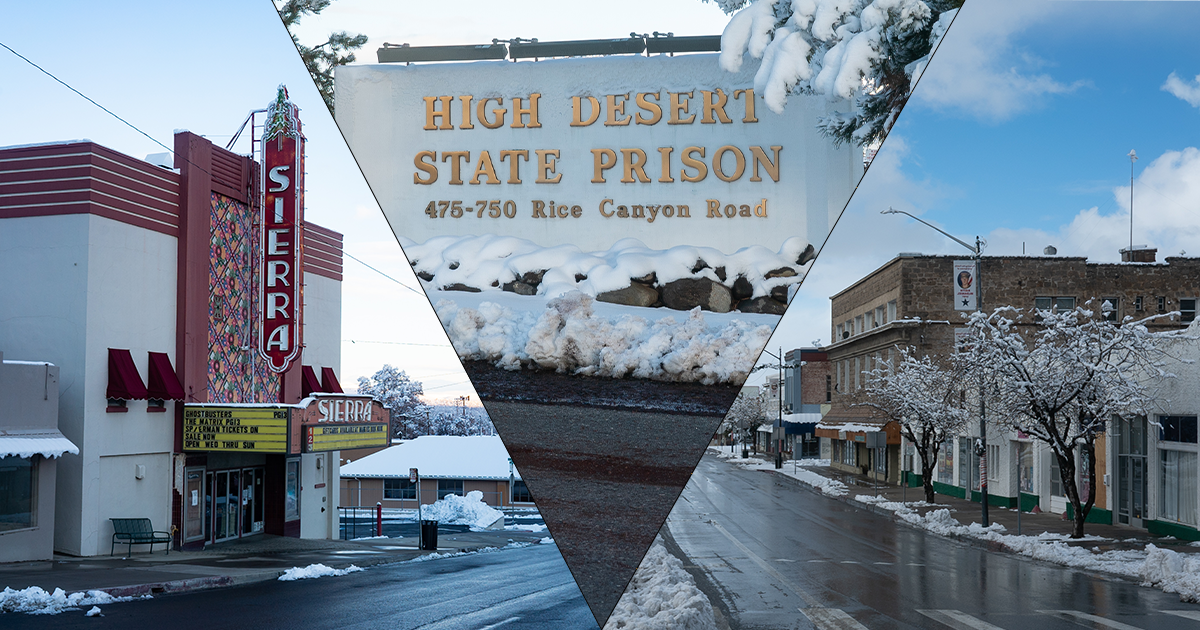
Illustration by Angus Crutcher; photos by Sara Suárez.
California is turning away from mass incarceration. After generations of opening prisons and increasing the number of inmates inside them, the state government is planning to close a number of institutions. But many state prisons are located in struggling rural communities dependent on the jobs and health care infrastructure these facilities provide. The Newsom administration’s announcement of its intention to close the California Correctional Center in Susanville this year has sparked questions about the effects of shutting the prison on the Lassen County community. How do the economies and civic spheres of our prison towns really work? What is the relationship between these institutions and their communities? And what assistance, if any, should the state provide to towns that lose their prisons?
Lassen Community College President Trevor Albertson, Parlier mayor and retired correctional officer Alma Beltran, and University of Wisconsin sociologist John M. Eason, author of Big House on the Prairie: Rise of the Rural Ghetto and Prison Proliferation, visit Zócalo to discuss what the end of prisons will mean for neighboring communities.
The Takeaway
After the Prisons Close, Where Does That Leave Rural Communities?
Incarceration Is Big Business In Towns Like Susanville, Which Now Must Find a New Economic and Civic Path Forward
Efforts to close prisons need to come with assistance to rural communities that depend on these institutions, said panelists at a Zócalo/California Wellness Foundation event in the northeast California town …






